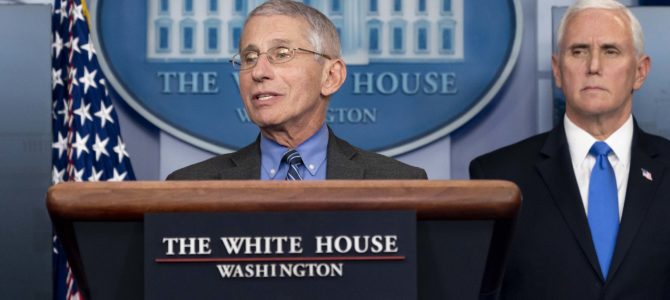
It was darkly funny at first how neither corporate media nor their Democrat friends could agree with a single thing President Donald Trump said, no matter how plausible — or even obvious — it was. He realized this, and used it to great effect.
When Trump said America needed to be great, corporate media said it had never been great. The New York Times even launched a massive project to prove this. Although they later had to retract the opening thesis of the project — that the colonists rebelled to preserve slavery — their friends gave them a Pulitzer anyways.
When Trump insulted the vicious and evil MS-13 gang of rapists and child murderers, calling them “animals,” corporate media defended MS-13. Attacking evil international gangs this way is extremely racist, they said. “Bigotry,” Emmy-award-winning journo Jamil Smith intoned in Rolling Stone, “requires that the enemy be made out to be less than human, and Trump has long made use of blurry lines to criminalize entire groups of people.”
When Trump said our European allies needed to contribute to their own defense and pay their bills, corporate media said they didn’t and that this was unfair. The president is threatening global security by asking Europe to be secure, they insisted. NATO will collapse if it’s paid for, they warned.
When Trump killed the Iranian spymaster responsible for more American military deaths than any other living adversary, corporate media mourned his passing. “He was a war hero,” CBS’s Holly Williams intoned in her authoritative Australian accent. CNN’s Fareed Zakaria said he was known as “personally incredibly brave,” and Anderson Cooper said the dead terrorist reminded him of French World War II leader Charles de Gaulle.
In the eyes of our reporting class, every single thing President Trump said — or did — had to be wrong. It started out entertaining and predictable, but could also be troubling, depressing, and enraging, as when reporters played blind to murderous race riots, claiming they were entirely peaceful, or when they refused to admit that the border is a human-smuggling and human-victimizing operation entirely run by foreign criminal cartels. That kind of reporting hurts people badly, and does no service to the causes these reporters hope to champion.
But when COVID-19 came to our shores, their obsession with taking the opposite side of President Donald Trump became very dangerous to our entire country — and is the final crack in their long-fracturing and now-collapsed role as a check on good governance.
The press in America is expected to provide reliable information that its audience can use to make decisions and come to informed views in their day and in their larger lives. Some of these decisions might be mundane, others — like voting and taking care of your family — will be very important. Not only this, but the press in America is expected to expose lies, crime, corruption, and other misdeeds — and to hold powerful private and government officials to account.
In both of these duties, the press in America has demonstrably — and seemingly intentionally — failed us.
When COVID first hit our shores, they attacked Trump as a racist for declaring a travel ban on the source of the virus. When the president said the virus might have come from a lab, the press said he was lying and it didn’t. When he said we’d develop vaccines maybe within a year, they “fact-checked” him false. When he said we were recovering as a country, they said we weren’t. When he supported states reopening, they said we’d die. None of their responses had any basis in fact — they were merely based on a seething hatred for the president.
“Eighty seven percent of stories by U.S. major media outlets are negative in tone,” Dartmouth economics professor Bruce Sacerdote and two other researchers found, “versus 50 percent for non-U.S. major sources and 64 percent for scientific journals.” That means the American press is an outlier — unique among even all the other free countries’ unimpressive media machines.
But far from done with their damage, American corporate media went further, elevating fraudulent champions to fight their most hated president. Men like Gov. Andrew Cuomo, who is directly responsible for deaths in nursing homes and the cover-ups that followed yet still managed to make money off his supposed leadership and newfound media celebrity. Remember when he was “America’s boyfriend”?
Far worse than him, though, is Dr. Anthony Fauci. Everything Fauci touched was gold as far the media cared, and the love was returned: For Fauci, there wasn’t an audience too small, a publication too irrelevant, or a camera too ugly for him to chase; all the while switching up facts and stories, and slipping in and out of his lies with since-exposed declarations his media fanboys then held up as declared truths. On camera, reporters fawned. Behind the scenes, they wrote him the kind of emails a husband might be jealous to read. All the while, Fauci undermined the last vestiges of an honest media. What a torrid love affair.
When Fox News’s Bret Baier said COVID may have leaked from a lab — something Fauci knew at the time was possible — an email chain the doctor is on refers to Baier’s observation as a “conspiracy.” We know that Fauci and his allies spent the next year attacking and dismissing those who shared this theory, but what did he write in response at the time? We don’t know because the email is entirely redacted — the American public can’t read it. It’s confidential, stand back: Important people are making big decisions that affect our lives. All very hush-hush.
Of course, Fauci didn’t have to ask his friends in media to keep all these revelations quiet for him. They knew what to do. The day after these emails were dumped by Freedom of Information Act requests from BuzzFeed and The Washington Post, the White House press corps didn’t ask a single question about them.
In an interview Wednesday night with Nicole Wallace, she swooned that his leaked emails made him look extra cool, and chose to instead ask Fauci if he was “making up lost ground,” apparently referring to the Trump administration, which, for the record, did what the media claimed was impossible by shepherding the development and distributing a vaccine in record time.
But what about those BuzzFeed and Washington Post reporters whose FOIAs uncovered this treasure trove? Sadly and expectedly, their articles’ tones were practically romantic. “Anthony Fauci’s Emails Reveal The Pressure That Fell On One Man,” BuzzFeed’s Jason Leopold writes, beginning with examples of how the very man whose shutdown policy has crippled the country (while not stopping the virus) is a soothing presence to those around him.
The emails, Leopold writes with a straight face, “lay bare Fauci’s ambivalence toward his newfound celebrity status.”
The Post, for their part, opened uncritically with Fauci’s communications with Chinese scientists (who have lied from the beginning). The television doctor, they say, is “an at times reluctant… media star.”
But why were Fauci and Cuomo heroes in the first place? Why were their words reported so uncritically? Why were the hard questions and good evidence of problems being put forth from The Federalist, The Daily Caller, Fox News, and others ignored by leftists in the media?
Why did corporate media instead print stories whose veracity was impossible to prove? Why did they cheer on Silicon Valley censorship of COVID storylines that ended up bearing out time and time again, from mask flip-flops to lockdowns not working to nursing home deaths to no outdoor transmission to lab-leak accusations?
We know the answers to all of these questions: It’s because they hated Donald Trump, hated his supporters, and wanted to hurt them.
But all this documenting of their failings isn’t about racking up points: This really matters. In a free republic, the role filled by a free media is in informing the voters. When media become so demented they deliberately fail at that, they, like so many other rotten and corrupt aspects of our society, fail in their function — and the country suffers for it.
It’s not even worth a “democracy dies in darkness” joke; those are as tired as this whole game. But what happens when the next big disease rolls around? And what if it’s one that’s actually as deadly as people thought COVID might be? Who can people trust? The scientists? The journalists? No: They sacrificed their credibility to hurt Donald Trump.
They succeeded in that. I hope it was worth it.









